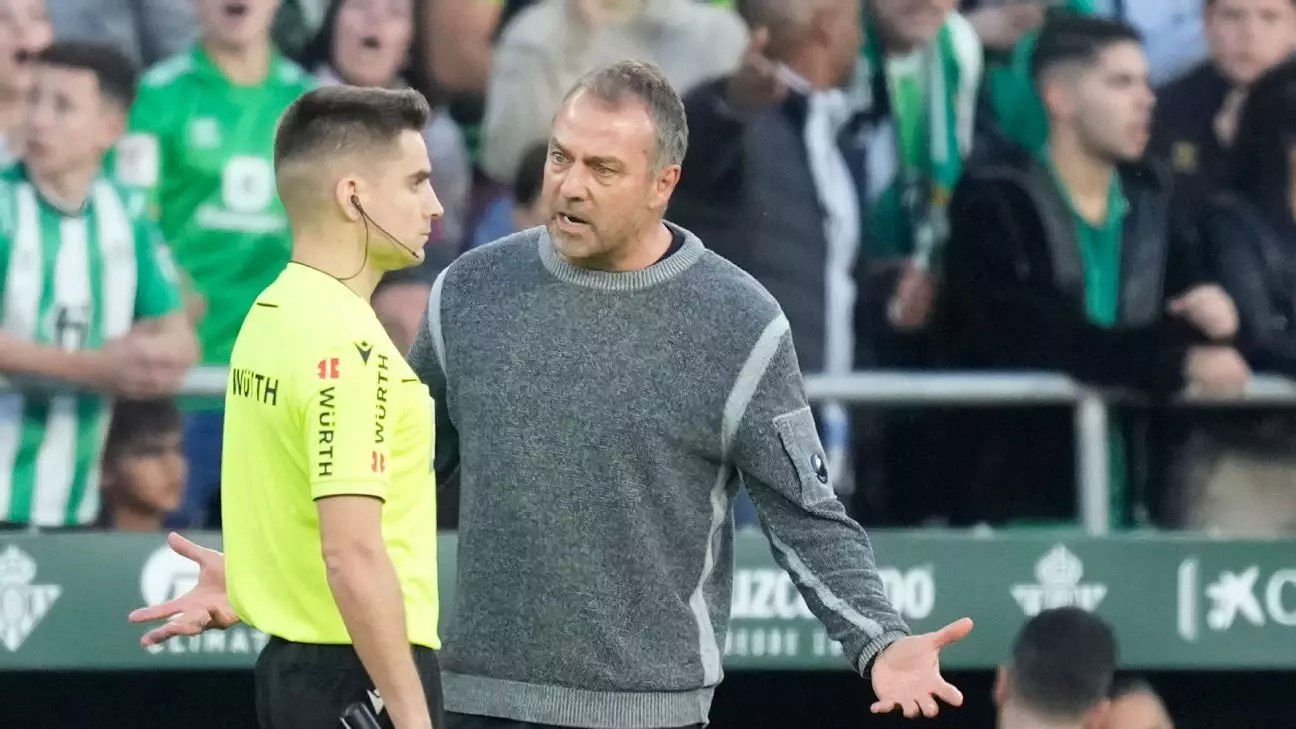In recent weeks, the treatment of referees in Spain’s football environment has come under intense scrutiny. The atmosphere has been charged, especially following an incident involving a prominent Real Madrid player, Jude Bellingham, who was sent off and subsequently led to threats against match officials. Barcelona’s coach, Hansi Flick, has stepped into this fray, expressing solidarity with referees and calling for necessary reforms and protections from the Royal Spanish Football Federation (RFEF). This article explores the critical views surrounding the treatment of referees amid the ongoing discussions regarding their roles and responsibilities within the sport.
The ongoing challenges faced by referees in Spain are alarming. Jose Luis Munuera Montero, the referee who officiated Bellingham’s controversial red card, reported being unable to leave his house due to death threats. Such extreme situations are not merely anecdotal; they highlight a growing trend of hostility against officials in football, which often stems from high-pressure situations in matches where emotions run high. The pressures of public and media scrutiny have exacerbated the dangers referees face, painting a picture where their role in the game becomes perilous.
Hansi Flick brought attention to these injustices during a recent press conference. His statements emphasized the need for greater respect towards match officials while urging colleagues in the football community to protect them. He noted that mistakes are part of humanity, reminding everyone that coaches and players are equally responsible for maintaining a safe and respectful atmosphere for referees.
In light of escalating tensions, the RFEF has begun exploring potential reforms aimed at enhancing the refereeing structure in LaLiga. This decision follows complaints from Real Madrid regarding the standards of officiating, deeming it essential to avoid the “adulteration” of competition. A reform commission has been established under the guidance of the RFEF’s technical committee of referees (CTA), which presents both challenges and opportunities.
While reform efforts are necessary, they must be carefully considered to avoid undermining the authority of referees in the field. As Flick noted, it is crucial for the RFEF to “show how strong they are” against threats and criticism. Maintaining confidence in the officiating corps will require a concerted effort not only to reform but to create an environment where referees can execute their duties without fear of personal attack or public backlash.
Flick’s defense of referees transcends the immediate crisis; it also opens a broader discussion about sportsmanship in football. Athletes and coaches wield considerable influence over fans and public behavior. The way they react to officiating decisions can set a precedent for fan behavior and attitudes towards referees. Addressing this issue calls for collective responsibility among players, coaches, and football associations to cultivate a culture that values respect for officials, irrespective of the outcome of matches.
As Flick stated, “We have to trust in them”—a sentiment that prompts introspection about the responsibilities of all stakeholders in the sporting community. The balance between passionate gameplay and respect for authority figures like referees is pivotal for fostering a positive atmosphere in sports.
Barcelona’s upcoming match against Las Palmas places them in a position of significance, with the awareness of off-field noise surrounding referees heightened. Flick’s rallying cry for referee support encourages unity in a sport that can too easily descend into chaos without it. As Barcelona prepares for their fixtures, they must remain vigilant not only in terms of their performance on the pitch but also in facilitating a respectful attitude toward those who preside over the game.
Ultimately, it is critical that the collective actions of the football community instigate meaningful change. The emphasis on referee protection and fair treatment is paramount, ensuring that officiating maintains its integrity and respect among players, coaches, and fans alike. Only through concerted efforts to uphold the sanctity of the game can Spanish football move past this troubling chapter, ensuring a safer environment for everyone involved.


Leave a Reply